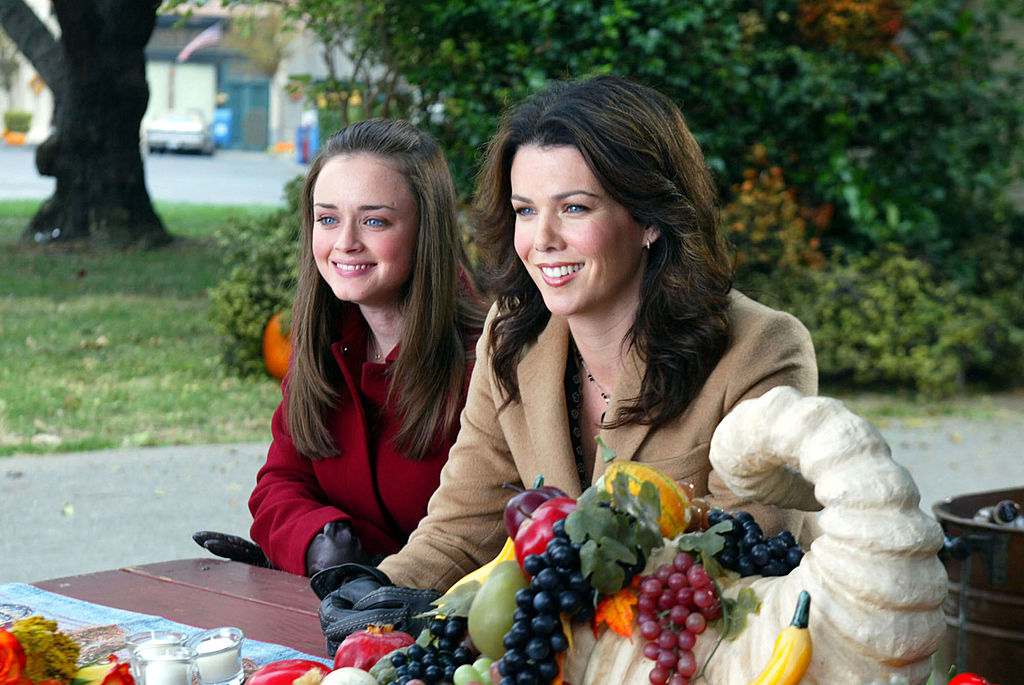‘Gilmore Girls’: Four Times The Show Was Totally Politically Incorrect
Gilmore Girls is undoubtedly enjoying a second day in the sun. With the entire series streaming on Netflix, it has garnered an entirely new audience. While much of the series stands up to the test of time, there are more than a few moments that date the acclaimed series to a different period. Do you remember these four very politically incorrect moments?
That time Rory fat-shamed, a ballerina
Rory always wanted to be a journalist. She also seems to have a hard time when she’s criticized even mildly for failing to get a job done. When an article she pens for the Yale Daily News isn’t put in the paper, she’s motivated to craft a better piece next time around. Unfortunately, Rory falls back on quippy jokes to get the job done. Not only is she incredibly harsh, but she pokes fun at the body of a ballerina in the show she is reviewing. She calls her “hippo-like” and makes comments on the “fat roll” in her leotard.

Fat-shaming is verboten now but was considered somehow acceptable in the early 2000s. Apparently, someone didn’t give Amy Sherman-Palladino the memo, though. The famed co-creator of Gilmore Girls relied on the tired trope in Gilmore Girls: A Year In the Life, as well. During one episode, Rory refers to her neighbor as back fat Pat, according to Bustle.
Lorelei eluded to a relationship between her father and his valet with disgust
In Season 5, Richard and Emily separate. During the separation, Richard moves into the pool house and hires a valet to attend to his needs. The valet, Robert, is quiet and unassuming. He spends most of his hanging out in the background and doesn’t ever say anything during his time on the show. That doesn’t stop Lorelei from making jokes at his expense. In one episode, she tells Rory that Richard seems happy in the pool house with his books and his male friend, Robert.
Rory pleads with her mother not to be “gross.” The statement implies that Lorelei is alluding to a sexual relationship between her father and the valet. Rory’s discomfort with homosexuality may have been ignored in the early 2000s, but the attitude is absolutely objectionable now.
Once Richard and Emily get back together, Robert vanishes from the show just as quickly he came. Which brings us to another point of political incorrectness; the way Emily and Richard treat their staff.
Emily treated her maids as interchangeable commodities
Emily’s character was supposed to be inherently flawed. She was supposed to be rigid and snobby, but there were ways to showcase those traits without treating people like interchangeable commodities. For the entirety of the series, it’s a running gag that Emily can’t keep a maid. She fires them for the smallest offense and doesn’t seem to bother learning their names in most cases.
The poor treatment is problematic, but it’s even more disturbing when you look at the long list of maids the household went through. The majority of the actresses that portrayed the hired help were non-white, many had accents, and in several instances, it was pointed out that they didn’t speak English. Not only is it a terrible stereotype, but it sends a pretty damaging message to viewers.
Luke called an inanimate object “gay”
Kirk, tasked with babysitting his girlfriend’s dog, decides to carry it around in a bag. This was once a commonplace practice. More often than not, a woman was seen carrying a dog around in a bag or pet carrier. When Kirk enters the diner, Luke is surprised to see his male friend carrying a large tote. That’s not where the problem comes in, though. Luke asks Kirk, “what’s with the gay bag?”
Lorelei and Luke’s jabs towards the LGBTQ+ community are not reserved to the two episodes referenced, though. According to Out the entire series is riddled with swipes towards the gay community. In fact, there are instances in every single season. Amy Sherman-Palladino insists that several characters were assumed to be members of the LGBTQ community, but still, jokes are made at the group’s expense regularly. Gilmore Girls: A Year in the Life was certainly queer-friendlier, but it was not queer-friendly by any stretch of the imagination.


